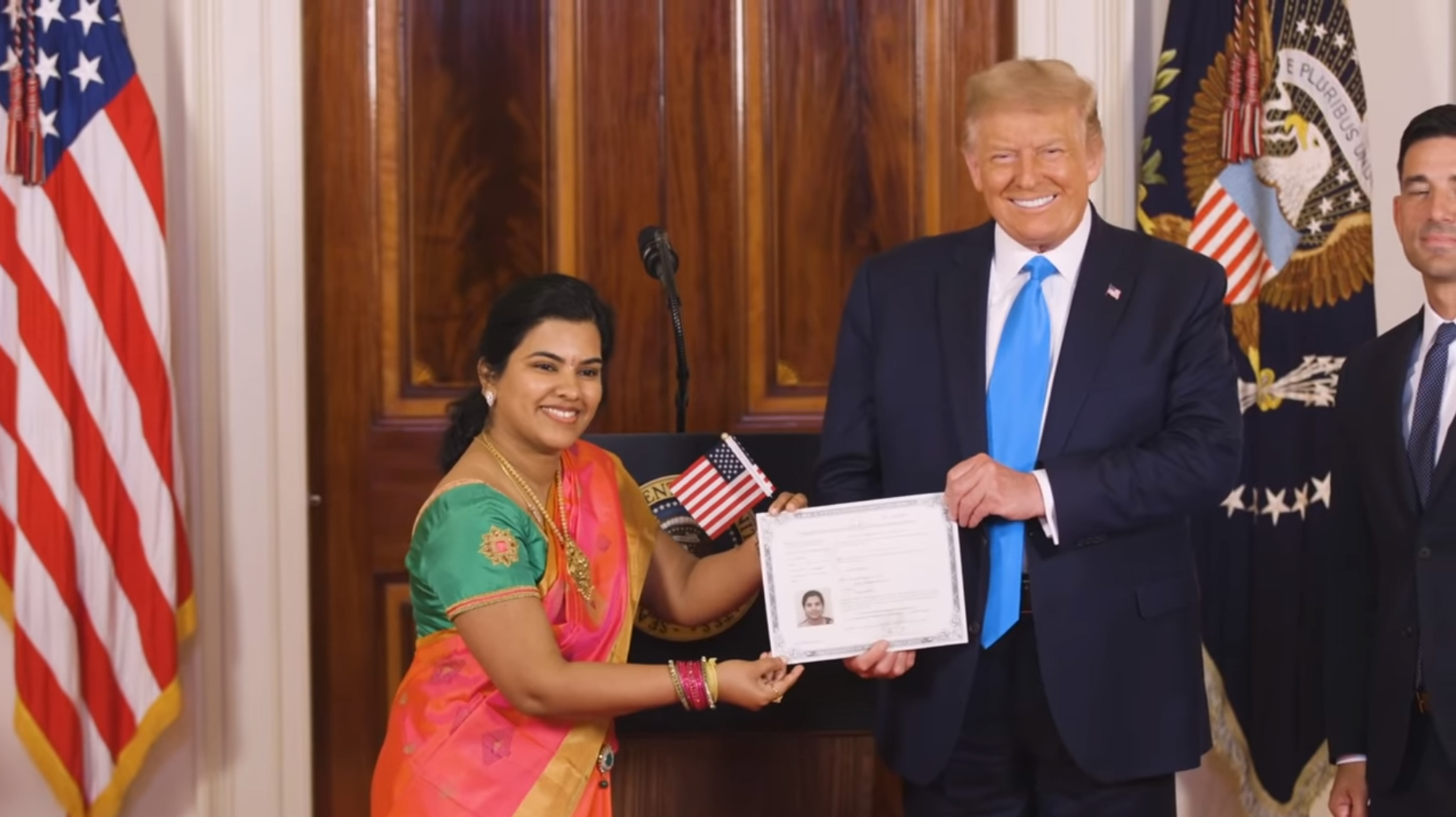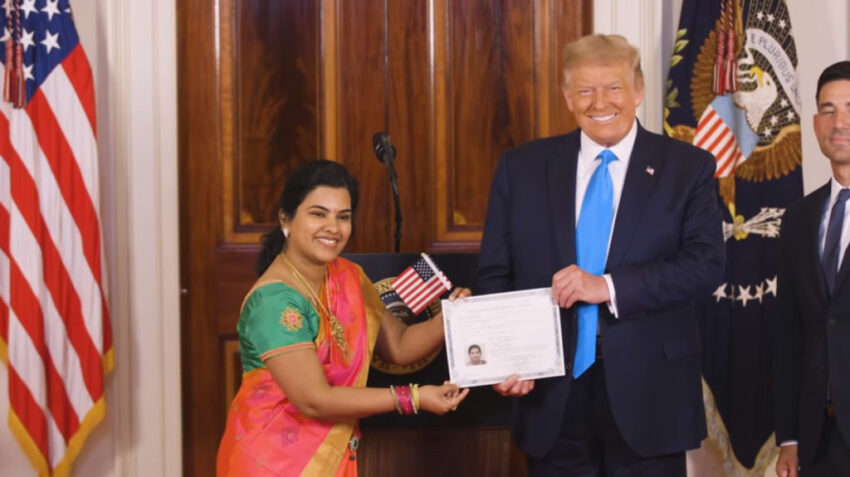
The Trump administration has signaled it will further scrutinize immigrants seeking U.S. citizenship by ordering authorities to double down on efforts to determine whether applicants have “good moral character,” according to a recent policy memo issued by U.S. Citizenship and Immigration Services.
On Friday, USCIS called for a more “rigorous, holistic and comprehensive” approach to evaluating those applying for naturalization, stating that “good moral character” is defined by an individual’s “behavior, adherence to societal norms, and positive contributions.” USCIS officers have been instructed to judge “on a case-by-case basis,” the memo stated.
Experts say the directive and its vague language are reflective of the Trump administration’s broader moves to limit legal immigration, leaving wiggle room for USCIS officers to make subjective choices about who gets to become a U.S. citizen.
While the order “is not necessarily a break from past practice,” it emphasizes USCIS officers’ ability to “impose their subjective interpretations of this fuzzy concept in their evaluations of naturalization applicants,” said Jane Lopez, an associate professor of sociology at Brigham Young University who specializes in immigration and citizenship policy.
According to Lopez, all applications for U.S. citizenship, permanent residency, tourism visas and student visas are by default subject to evaluation by one or more USCIS officers. These officers already have the “authority to deny that application for a multitude of reasons,” she added.
The latest move could “make it harder for noncitizens to obtain legal belonging in the United States,” she said, since USCIS officers “must evaluate something they cannot consistently describe or define.”
President Donald Trump has cracked down on immigration in his second term, launching what may be the largest domestic deportation operation in U.S. history and threatening to strip U.S. citizenship from some of those who have been naturalized. In April, USCIS also announced it would screen immigrants’ social media for purported antisemitic activity and use any posts it finds as potential grounds for denying visa and green-card applications.
During his first term, Trump issued a sweeping executive order that significantly revamped the federal government’s approach to illegal immigration by allowing the removal of those who “in the judgment of an immigration officer … pose a risk to public safety or national security.”
“Good moral character” has been a requirement for obtaining U.S. citizenship since the Naturalization Act of 1790. But Lopez said citizenship applicants are now faced with the additional burden of proving they have “positive attributes,” rather than simply demonstrating they have not been convicted of crimes or taken part in other kinds of misconduct.
The USCIS memo cites “family caregiving, responsibility, and ties in the United States” as examples of positive attributes, as well as educational achievement and long-term community involvement.
In response to a question from The Washington Post about how “good moral character” will be defined, USCIS spokesman Matthew J. Tragesser said in a statement said that the memo ensures officers are accounting for applicants’ contributions to U.S. society, “including community involvement, achievements, and financial responsibility rather than the absence of their misconduct.” He said that U.S. citizenship should be offered only to “the world’s best of the best.”
Gabriel J. Chin, a professor and scholar of immigration law at the University of California at Davis, said the latest guidance is “so loose and discretionary that it is obviously susceptible to arbitrary enforcement.”
“Many birthright U.S. citizens do not have sufficient educational or economic achievements that would entitle them to a visa to immigrate to the United States,” Chin said in an email. “If they had not been born here, they would not make the cut.”



